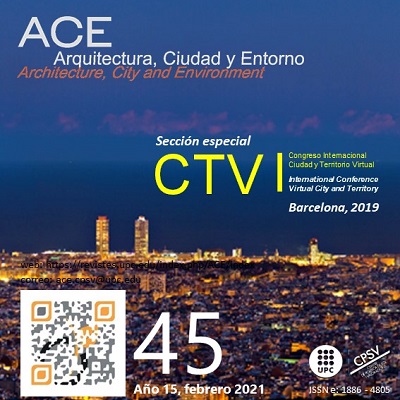Archeology of the Future in El Raval Neighborhood of Barcelona. About Three Inertias of Technocratic Urbanism and their Undesirable Effects
DOI:
https://doi.org/10.5821/ace.15.45.10311Keywords:
modern movement, biopolitics, social engineering, social normalizationAbstract
This article is the result of our analytical effort to understand how extremely drastic urban interventions have been thought and practiced against the El Raval neighborhood of Barcelona in formally democratic periods. What we consider original of our analytical proposal is the identification of a kind of technocratic doxa that would have permeated urbanism –also Barcelona urbanism- from its beginnings and that will end up characterizing the acclaimed as well as the controversial “Barcelona Model”. The methodology used comes from historical anthropology and urban sociology. Our theoretical prism intersects historiographic perspectives such as biopolitics, sociological perspectives such as criticism of social engineering and urban planning perspectives such as the reconfiguration of public space. It is argued here that rationalist urbanism would have approached the complex art of living in society from Cartesian formulas, accomplices to a large extent of the reification characteristic of positivist disciplines. We consider that this way of conceiving urbanism has been nourished by epistemologically inconsistent, simplifying and often authoritarian conceptual assumptions. The last part of the article identifies three of the social inertias that would be generated or driven by technocracy - not just urban planning technocracy: The obsessive tendency towards normalization and its perverse effects; the contradictions between the "solutions" and the "social problems" to be managed; and finally, the inclination to consider the street as a kind of battlefield and, therefore, the home as a refuge.
Downloads
Published
Issue
Section
License
| INTELECTUAL PROTECTION CRITERIA |
At this moment, it is count with the "Oficina Española de Patentes y Marcas", while global protection it is being processed by the World Intelectual Property Organization (OMPI/WIPO). Nevertheless the International Standard Serial Number Office (ISSN) has given the following numbers ISSN: 1886-4805 (electronic version) and 1887-7052 (paper version). All articles will be peer reviewed, using double blind reviewing. |
| COPYRIGHT |
The article contents and their comments are authors exclusive liability, and do not reflect necessarily the journal editor commitee's opinion. All ACE published works are subject to the following licence CC BY-NC-ND 3.0 ES http://creativecommons.org/licenses/by-nc-nd/3.0/es/ It implies that authors do not hold nor retain the copyright without restrictions but only those included in the licence. |





































